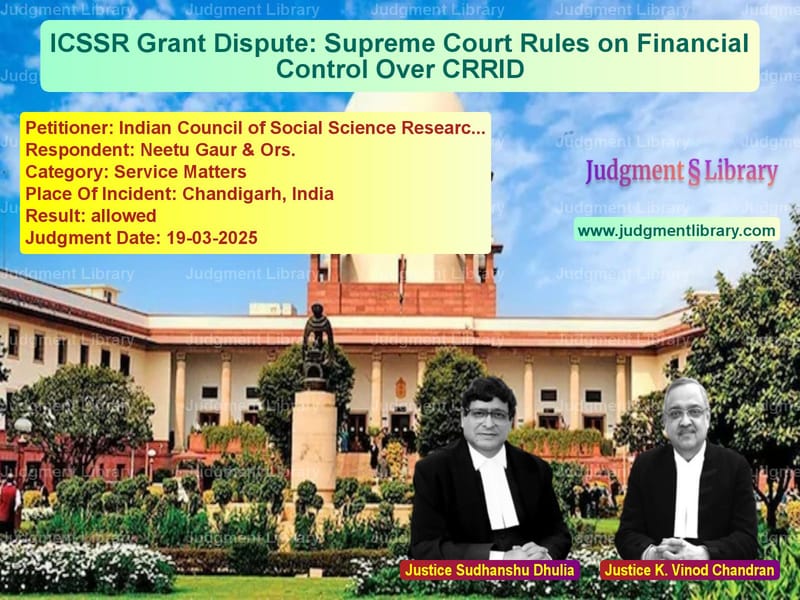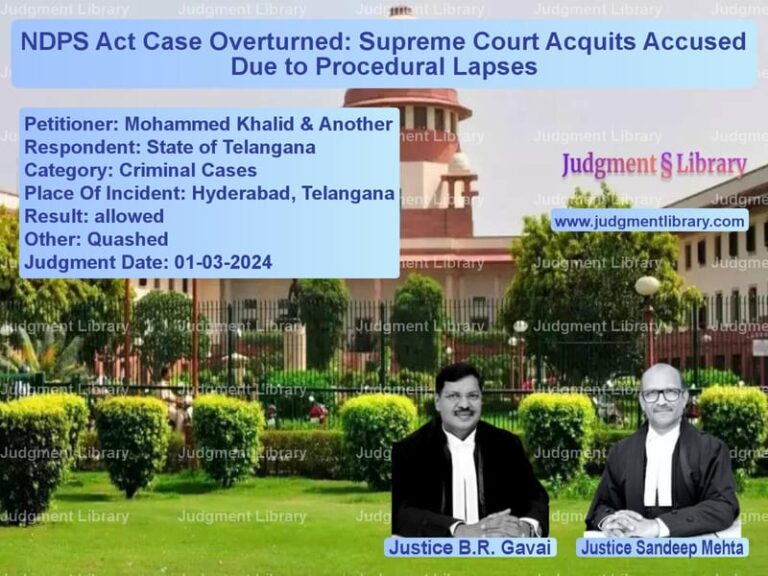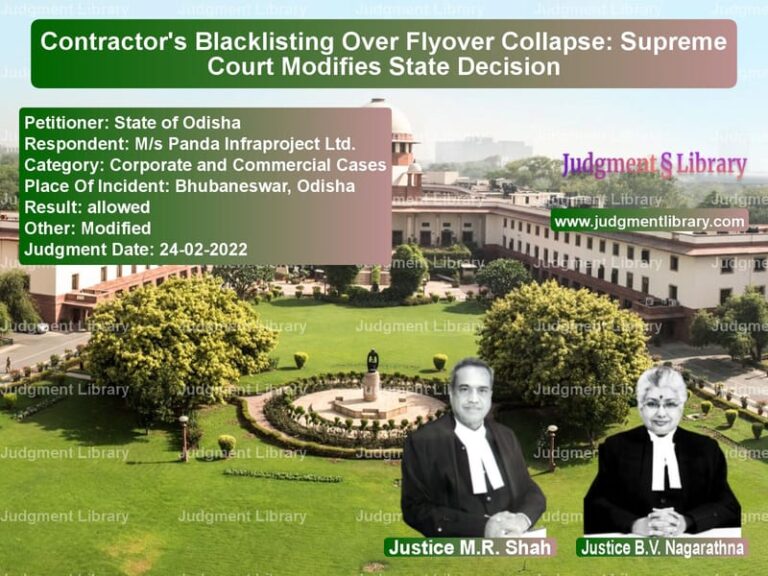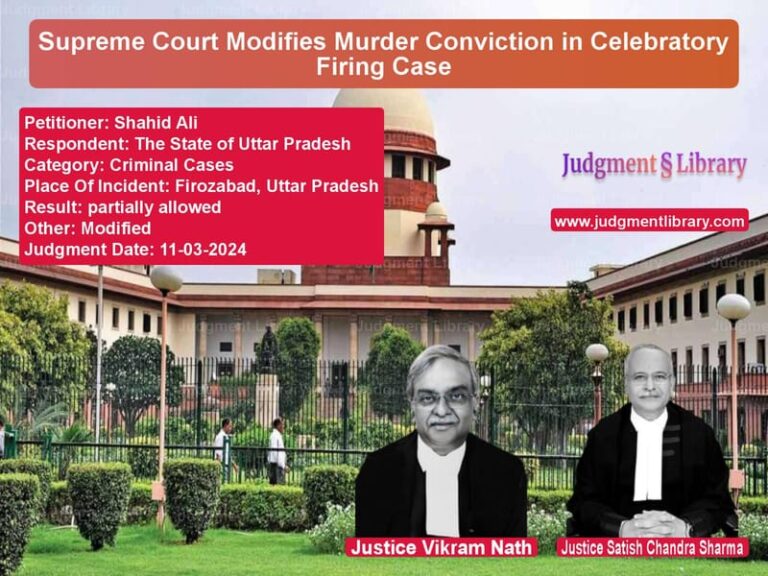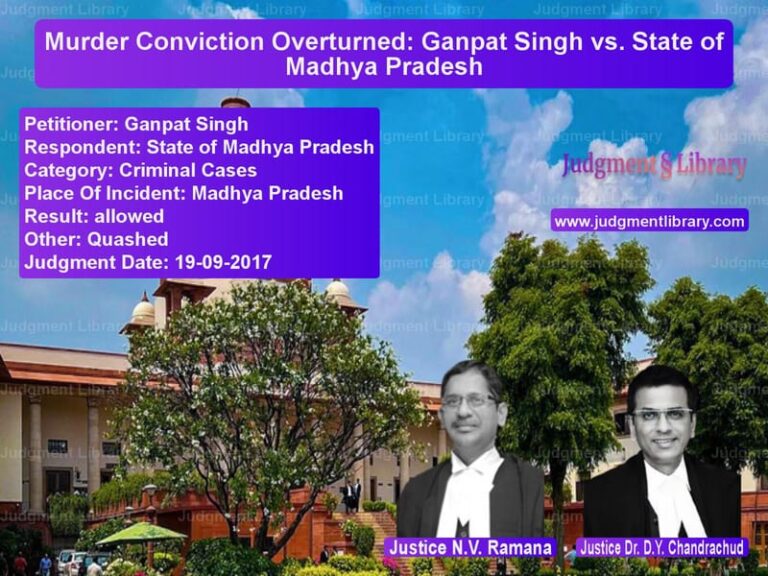ICSSR Grant Dispute: Supreme Court Rules on Financial Control Over CRRID
The Supreme Court of India recently delivered a landmark judgment in the case of Indian Council of Social Science Research (ICSSR) vs. Neetu Gaur & Ors.. The case revolved around whether ICSSR, a government-funded research organization, could be held liable for the salaries of employees at the Centre for Research in Rural and Industrial Development (CRRID) after it stopped financial grants due to irregularities. The Supreme Court ruled in favor of ICSSR, clarifying that funding obligations do not translate into administrative control.
This case is significant because it sets a precedent in determining the financial responsibilities of grant-giving bodies and their limits in governance. The court’s ruling impacts how research institutions and funding agencies operate, ensuring accountability and transparency in grant utilization.
Background of the Case
CRRID, a prominent research institute in Chandigarh, had been receiving grants from ICSSR since 1984. The financial support allowed CRRID to conduct research projects, pay staff salaries, and maintain operational expenses. However, in 2015, complaints surfaced regarding financial mismanagement, unauthorized appointments, and salary irregularities. In response, ICSSR set up an investigative committee to examine the allegations.
After multiple inquiries, the committee found evidence of the following violations:
- Appointments of employees without proper qualifications.
- Unauthorized salary hikes beyond ICSSR’s prescribed norms.
- Misappropriation of research funds for personal use.
- Failure to maintain accurate financial records.
Based on these findings, ICSSR discontinued its grant to CRRID in April 2021. This decision led to financial difficulties for the institution, resulting in non-payment of salaries to employees. Aggrieved by this, the employees approached the Punjab and Haryana High Court, demanding their salaries from ICSSR.
Legal Battle in the High Court
The employees argued that ICSSR exercised “deep and pervasive control” over CRRID. They contended that since ICSSR dictated financial policies, approved projects, and had oversight over expenditures, it was liable for their salaries. The Punjab and Haryana High Court ruled in favor of the employees, holding ICSSR responsible for salary payments.
ICSSR, aggrieved by this decision, challenged the ruling in the Supreme Court, asserting that its role was limited to financial grants and that administrative control lay solely with CRRID.
Arguments Presented Before the Supreme Court
Petitioner’s Arguments (ICSSR)
- Grants are discretionary: ICSSR argued that its financial assistance was subject to compliance with certain conditions. Since CRRID failed to adhere to these conditions, funding was rightfully stopped.
- Administrative control rests with CRRID: The council contended that while it provided financial support, it never managed the day-to-day administration of CRRID.
- Legal precedents support ICSSR’s position: The petitioner cited various judgments where courts ruled that funding does not imply direct control over an institution.
- Mismanagement by CRRID: ICSSR pointed out that the institution misused funds and failed to rectify financial discrepancies despite repeated notices.
Respondents’ Arguments (CRRID Employees)
- Employees relied on ICSSR’s funding: The respondents argued that their salaries had always been paid through ICSSR grants and that withdrawing funding without alternative arrangements was unjust.
- ICSSR’s financial control: They asserted that ICSSR exercised significant influence over CRRID’s functioning, approving projects and budgets, and therefore was responsible for salary disbursement.
- Employment contracts implicitly linked to ICSSR: Employees claimed that their hiring and salaries were contingent on ICSSR’s funding, making the council legally liable.
Supreme Court’s Key Observations
The Supreme Court critically examined the arguments and ruled in favor of ICSSR. The Court made several key observations:
“A funding agency cannot be held accountable for financial mismanagement of an autonomous institution. Granting funds does not equate to administrative control.”
“The mere presence of financial oversight by ICSSR does not imply legal responsibility for salary payments of CRRID employees.”
“If an institution fails to manage its finances properly, the liability lies with the institution itself, not the grant provider.”
Most Important Verbatim Arguments from the Judgment
“ICSSR’s role as a grant-giving body does not extend to the direct management or administration of CRRID. The institution is responsible for ensuring compliance with funding conditions.”
“Merely because an institution is dependent on government grants does not make the funding body its employer or administrator.”
“When funding is withdrawn due to violations, the affected institution must take corrective measures rather than seeking continued financial aid without compliance.”
Final Judgment and Conclusion
- The Supreme Court set aside the High Court ruling, stating that ICSSR was not obligated to pay CRRID employees.
- The Court reaffirmed that funding agencies do not assume employer responsibilities.
- CRRID was directed to manage salary payments from its own financial resources.
- The Court advised institutions to ensure financial accountability to avoid similar disputes in the future.
This judgment reinforces that grant-giving bodies cannot be forced into employer-like obligations unless expressly stated in law or agreements. The ruling provides clarity on the limits of financial control and ensures institutions remain accountable for their administrative responsibilities.
Petitioner Name: Indian Council of Social Science Research (ICSSR).Respondent Name: Neetu Gaur & Ors..Judgment By: Justice Sudhanshu Dhulia, Justice K. Vinod Chandran.Place Of Incident: Chandigarh, India.Judgment Date: 19-03-2025.
Don’t miss out on the full details! Download the complete judgment in PDF format below and gain valuable insights instantly!
Download Judgment: indian-council-of-so-vs-neetu-gaur-&-ors.-supreme-court-of-india-judgment-dated-19-03-2025.pdf
Directly Download Judgment: Directly download this Judgment
See all petitions in Employment Disputes
See all petitions in Public Sector Employees
See all petitions in Recruitment Policies
See all petitions in Termination Cases
See all petitions in Judgment by Sudhanshu Dhulia
See all petitions in Judgment by K. Vinod Chandran
See all petitions in allowed
See all petitions in supreme court of India judgments March 2025
See all petitions in 2025 judgments
See all posts in Service Matters Category
See all allowed petitions in Service Matters Category
See all Dismissed petitions in Service Matters Category
See all partially allowed petitions in Service Matters Category

